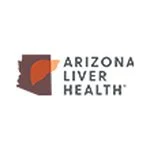
When it comes to detecting and identifying the severity of liver disease, the gold standard is typically a liver biopsy. Newer technological advances have paved the way for other non-invasive options such as the fibroscan. Not only does it come without any risks, but it’s also cheaper, quicker, and more accurate. If you are at risk for or already have liver disease, your overall health depends on early detection and regular monitoring. Both are just some of the reasons your liver can benefit from fibroscan technology.
Time-Tested, Trusted Technology.
For decades, ultrasound technology has enabled us to see a growing baby in the womb and many other medical uses. Fibroscan technology harnesses this technology to measure the stiffness of the liver. As the sound waves pass through the liver, the device measures how fast they go. The faster they move, through it, the greater the degree of fibrosis or stiffness. This is important because even though there are over 100 types of liver disease, most will follow the same path of progressive damage.

Chronic inflammation as the body repeatedly attempts to heal the liver ironically ends up doing the exact opposite. In a healthy liver, the body produces and transports collagen to repair damage by surrounding healthy tissue and strengthening it. With liver disease, more collagen is sent than needed. It builds up between liver cells, binding with other proteins forming scar tissue or fibrosis. The scarring can reduce or stop blood flow, starving and killing healthy cells. More scarring occurs, eventually replacing more and more healthy cells with non-function performing scar tissue.
Early Detection, Progression Monitoring, Lifesaving.
The liver is a regenerative organ and can heal itself even well into the later stages of liver disease. Ideally, those at risk of developing liver disease would work with their doctor to proactively monitor their liver health. By measuring the degree of stiffness, fibroscan technology can detect the presence of liver issues. Similarly, it is an essential monitoring tool for managing disease progression, stagnation, and regression.
There isn’t a limit to the number of times your provider can perform a fibroscan. In turn, this allows for real-time results measuring how well lifestyle modifications and other therapies are working. The best part is that along with typical lab tests, fibroscan technology continues reducing the need for liver biopsies. Ultimately, it is improving, prolonging, and easing the management of the lives of liver disease patients.

Arizona Liver Health offers FREE fibroscans for adults at risk of developing liver disease. Based on the exam results, you may be eligible to participate in currently enrolling research studies evaluating potential new options for liver diseases like NASH. Take control of your liver health today! Schedule your free screen by calling (480) 470-4000 or requesting an appointment online.
Sources:
https://www.ncbi.nlm.nih.gov/pmc/articles/PMC3594956/



